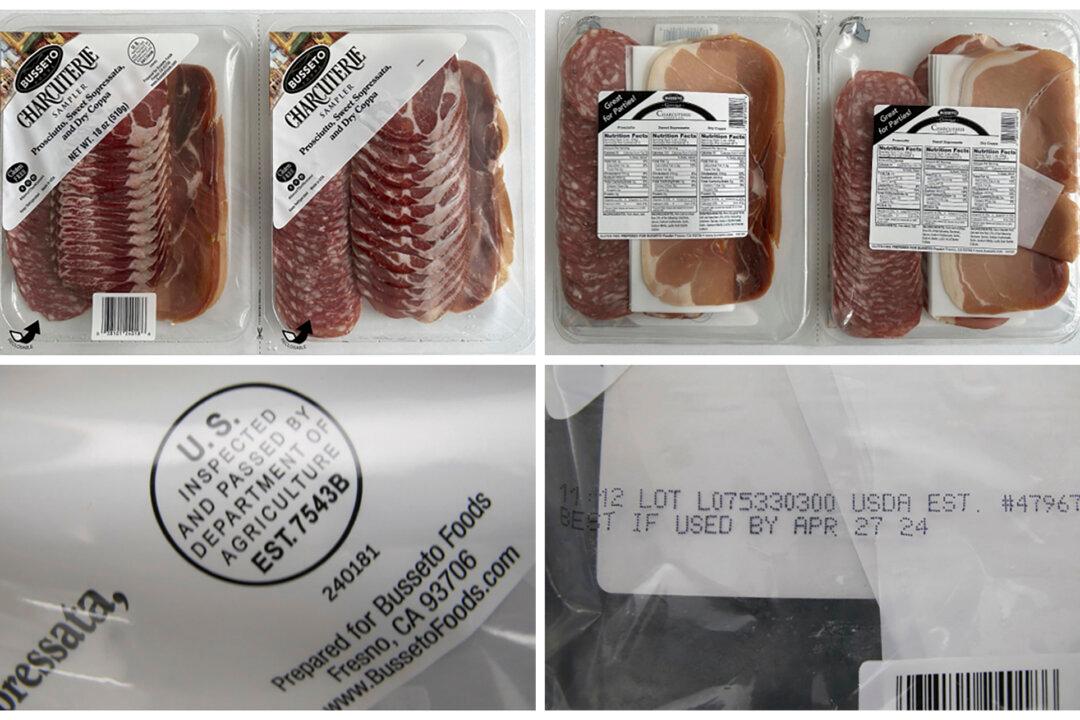The Centers for Disease Control and Prevention (CDC) has expanded its warning of salmonella infection linked to recalled charcuterie meats sold across the country amid an increase in cases.
At least 47 people across 22 states have been sickened and 10 people have been hospitalized after eating the Busseto brand and Fratelli Beretta brand meats, the health agency said in a new food safety alert published on Jan. 18.




